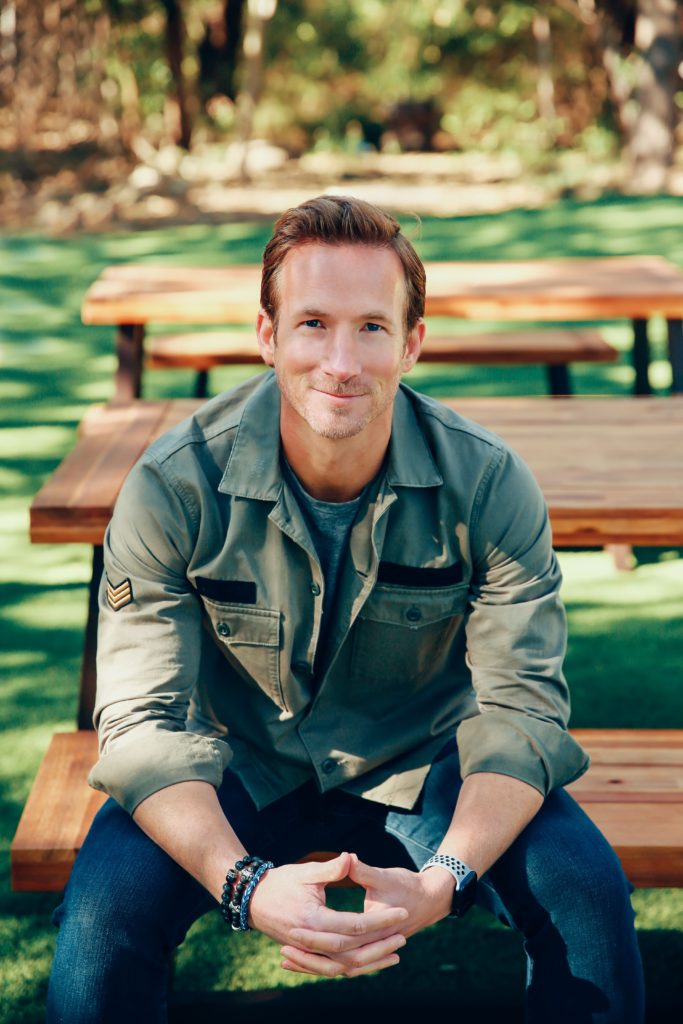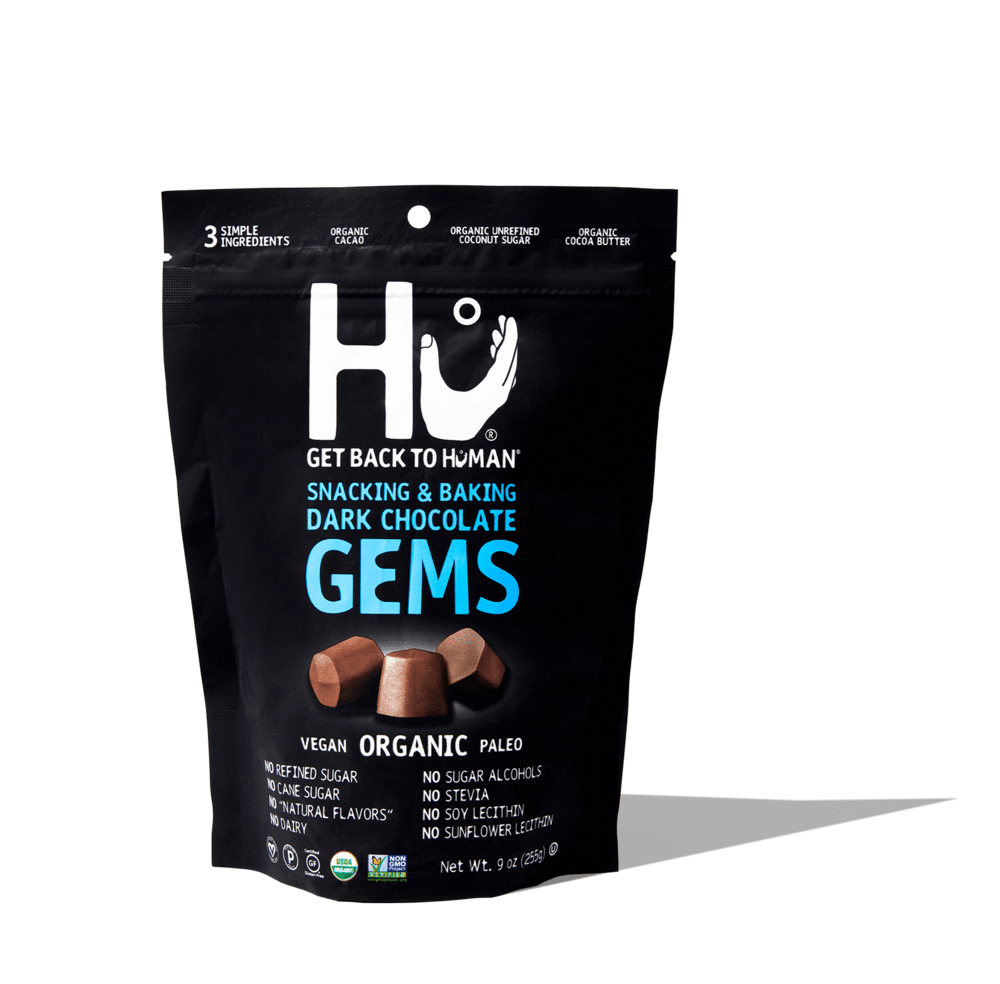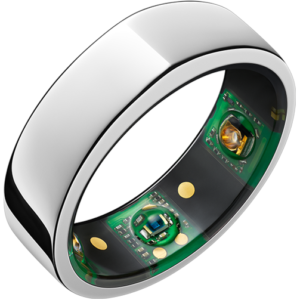
When Jason Karp joined SKU Track 8 as a mentor, he brought with him a wealth of knowledge gained from his own journey as a successful entrepreneur in an emerging industry.
The co-founder of Hu Kitchen leveraged the popular paleo-inspired eatery to test recipes to launch Hu – a popular and delicious line of vegan and paleo-friendly snacks. (Hu Almond + Sea Salt Hunks are a SKU Crew favorite). Last month, Hu was acquired by Mondelēz International .
Jason’s current venture is HumanCo, a mission-driven holding company that “is fanatical about creating products which help people live healthier lives.” The HumanCo team includes entrepreneurs, scientists and investment professionals who all share his passion for human health, wellness and sustainability. (HumanCo acquired a majority stake of Coconut Bliss, an organic plant-based ice cream company.)
Jason took time away from his busy schedule to talk about his entrepreneurial journey, his goals for HumanCo and the trends he’s most excited about in the better-for-you category.
Creating a business from personal health challenges
Kirstin: Your own personal story has driven your interest in creating better-for-you products. Can you please share that journey?
Jason: In my early 20s, soon after I started working in the hedge fund industry, I became very ill. I was diagnosed with several autoimmune diseases and an incurable, degenerative eye-disease where doctors told me I would be blind by the age of 30. I always thought I was “healthy,” and as a competitive, college athlete, I could not believe how this was possible so soon after I graduated college.
After months of many conventional doctor visits and second and third opinions all telling me the same thing, I fell into a deep depression and felt as though I had been delivered a death-sentence at the age of 23. Like Neo in the beginning of The Matrix, I relentlessly scoured the internet and read whatever I could in search of a different truth. I naively refused to accept these “expert opinions.”
After countless hours of research, self-experimentation, and a steadfast refusal to accept these diagnoses, I discovered that my diseases were primarily linked to what I was putting both in and on my body. Over the course of almost a year and after I dramatically improved my food choices, nutrition, and lifestyle by focusing on whole, unprocessed foods and eliminating chemical additives found in most consumer products, my ailments reversed including my supposedly incurable eye disease.
Many years later and after continued struggles with the limited food options available, my brother-in-law, Jordan Brown, began his own healthy journey to feel, perform and look better. The two of us loved to share books, articles and research on how food and lifestyle can make one “bulletproof” and can also be curative. In 2009, with the birth of my first child, my wife Jessica also became obsessed with what we were putting in and on our newborn baby girl.
Although we all had different motivations, the three of us arrived at the same conclusions:
- People were no longer living or eating in ways that were optimal for human health.
- There was a dearth of clean, trustworthy and delicious options for those looking to live a healthier life.

Inspired by the transformative power of real, whole ingredients, we set out to prove the possibilities of unadulterated, sustainable food without compromising on taste by opening Hu Kitchen (as in “human”), a paleo-inspired restaurant in NYC, in late 2012.
Leveraging restaurant recipes to create an empire
Chocolate, our flagship product at Hu, was interestingly born out of necessity for our baking. Before opening, we were experimenting with grain-free baked items such as muffins, scones and cookies and we wanted chocolate chips that met our strict ingredient guardrails of no refined sugar, no dairy, no soy, no lecithins or preservatives. When we could not find chocolate that met our guardrails, we had to create our own for baking. And Jordan was the mastermind in turning this base chocolate into the amazing Hu Chocolate bars people know of today!
I remained in the hedge industry for just over 20 years, and officially retired from that field at the end of 2018. Witnessing the dearth of trustworthy and healthy options for consumers – combined with the success of Hu and my other health and wellness investments – I reevaluated my life at 42. I decided to concentrate my time through a new holding company called HumanCo, investing in and creating more authentic, trustworthy brands and products in other categories within health and wellness.

Kirstin: What types of companies is HumanCo looking for?
Jason: HumanCo has two distinct market focuses between our holding company (HumanCo) and our newly-launched public company SPAC – a HumanCo Acquisition Corp (“HMCO” on the Nasdaq). (SPAC raised $250 million in a stock sale in December).
HumanCo is looking at both building companies and investing in companies generally with an enterprise value of $300 million or smaller. HMCO is the SPAC (Special Purpose Acquisition Company) that we created in partnership with CAVU Venture Partners. HMCO focuses on larger, private health and wellness companies. For HMCO, we are looking at companies with enterprise values of $1 billion to $8 billion.
For both companies – HumanCo and HMCO – we focus on anything you put IN your body (food, beverages, nutrition, supplements), anything you put ON your body (personal care, beauty, household products) and human-performance technology and devices that enable and empower you to live a healthier life.
For example, with human performance technology, I was an early investor in the Oura Ring, which is a wearable ring that tracks key signals from your body and sleep to deliver critical insights to help you build good habits and harness your body’s potential. These types of devices are part of the same healthier lifestyle, and are used by many of the same consumers.
Healthy living – from food to tech
Kirstin: What are the CPG trends that most excite you?
Jason:
- I am excited by the progress and better products we are witnessing with plant-based eating. In HumanCo, we have two companies in this area: Coconut Bliss (plant-based ice cream) and Monty’s (plant-based butter and cream cheese) which both have simple, clean ingredient labels with incredible taste and textures. However, I do think consumers should be wary of the many highly-processed, unhealthy plant-based options that are proliferating right now. It is important to avoid conflating what is good for the planet with what is good for human health. Many of the newer “chemistry lab”created, ultra-processed plant-based foods are not healthy.
- I am also excited by the rate of improvements in personalized nutrition and personalized technology. While we are all humans, we do have significant variations in what works for us individually. The next ten years will be amazing in terms of innovation in these areas!

Kirstin: HumanCo strives to balance helping humanity with generating shareholder value. Do you find this to be a challenge or do you see more successful mission-based CGP companies?
Jason: Fortunately, I think these two important principles can co-exist wonderfully as we just witnessed with the growth and ultimate sale of Hu. Consumers are beginning to really care about quality, trust, sustainability and all of the various stakeholders involved in a company.
If consumers demand products that have these standards, the market will follow (like it always does.) Investors are beginning to see that mission-driven companies (such as B corporations) grow faster, recruit better talent, have happier and more productive employees, and ultimately produce better products. While a profit motive is necessary, I have found that profit motive alone does not produce the results that businesses with relentless purpose and passion produce.
Ultimately, if consumers like what you are doing, they will pay for what they value and shareholder returns will follow.

